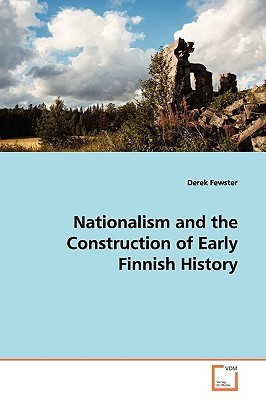
- We will send in 10–14 business days.
- Author: Derek Fewster
- Publisher: VDM Verlag
- ISBN-10: 3639128753
- ISBN-13: 9783639128758
- Format: 15.2 x 22.9 x 2.6 cm, softcover
- Language: English
- SAVE -10% with code: EXTRA
Nationalism and the Construction of Early Finnish History (e-book) (used book) | bookbook.eu
Reviews
Description
Finnish history has been the subject of numerous studies, but none of these have really considered the nationalist essence of the integral, underlying 'historical culture' of the nation. Even quite obvious political interpretations and visions of an ancient Golden Age have all too easily been dismissed as the consequences of mere patriotism or 'Kalevala enthusiasm'. This study presents the case for how the conceptions of a distant, glorious past have been advanced and actively developed within the national project of constructing a modern ethnicity of Finnishness. Accordingly, a conception of an original ancient greatness was paramount for the nationalist movements in both the Grand Duchy and the early Republic of Finland, especially so when the perceived nation was considered in need of intellectually unifying defences against the many conceived threats of Russianness after ca 1890. The book traces the construction of a Great Myth of National Origins from the 16th century until the end of the Second World War and provides richly illustrated examples of how the process of nation-building influenced and amplified the deep historical core of the emerging national consciousness.
EXTRA 10 % discount with code: EXTRA
The promotion ends in 17d.10:47:07
The discount code is valid when purchasing from 10 €. Discounts do not stack.
- Author: Derek Fewster
- Publisher: VDM Verlag
- ISBN-10: 3639128753
- ISBN-13: 9783639128758
- Format: 15.2 x 22.9 x 2.6 cm, softcover
- Language: English English
Finnish history has been the subject of numerous studies, but none of these have really considered the nationalist essence of the integral, underlying 'historical culture' of the nation. Even quite obvious political interpretations and visions of an ancient Golden Age have all too easily been dismissed as the consequences of mere patriotism or 'Kalevala enthusiasm'. This study presents the case for how the conceptions of a distant, glorious past have been advanced and actively developed within the national project of constructing a modern ethnicity of Finnishness. Accordingly, a conception of an original ancient greatness was paramount for the nationalist movements in both the Grand Duchy and the early Republic of Finland, especially so when the perceived nation was considered in need of intellectually unifying defences against the many conceived threats of Russianness after ca 1890. The book traces the construction of a Great Myth of National Origins from the 16th century until the end of the Second World War and provides richly illustrated examples of how the process of nation-building influenced and amplified the deep historical core of the emerging national consciousness.


Reviews